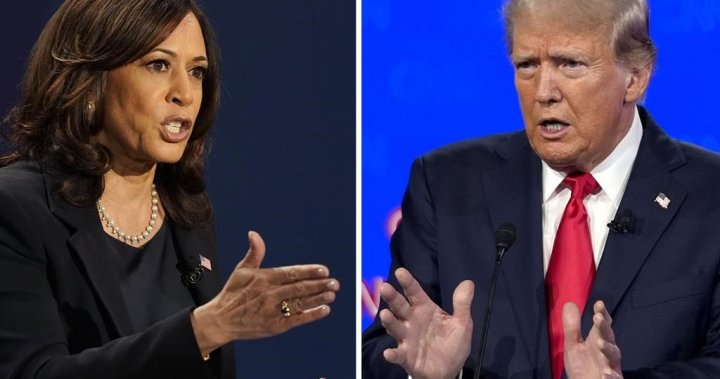
U.S. election: What would Harris, Trump economic plans mean for Canada?
Global News
Most Americans say the economy and their personal economic situation will factor into how they vote, far ahead of all other issues identified as important in the election.
As U.S. Vice-President Kamala Harris and Donald Trump fiercely battle for the White House in the U.S. election, they’ve largely focused their messages on the economy — and Canada is listening closely.
More than 90 per cent of voters in a recent Ipsos poll said the economy and their personal economic situation will factor into how they cast their votes, far ahead of all other issues identified as important in the election.
That reflects how most Americans, like Canadians, feel the cost of daily life remains difficult after two years of high inflation, which peaked in the aftermath of the COVID-19 pandemic but has cooled more recently.
Each candidate has taken different approaches to explaining how they will tackle the economy. Harris has detailed a series of proposals to lower costs for Americans, including targeted tax breaks, health-care coverage improvements and financial help for first-time homebuyers. Trump, meanwhile, has focused almost exclusively on tariffs on foreign imports and energy production, which he claims will boost funding for social supports and businesses.
The same Ipsos poll found Trump with a slight edge with voters who trust him on the economy, but that lead has narrowed since Harris became the Democratic nominee in July.
Canada is bracing for how hardline U.S. economic protectionism could get in the next four years, and how an upcoming review of North American free trade negotiations could shake out under a Trump or Harris administration.
Here’s a look at what Harris and Trump have proposed on the economy, and how Canada could be impacted.
Harris has mostly been non-specific about how she would address international trade and other global economic issues, which has many researchers and analysts believing she will continue U.S. President Joe Biden’s policies. Those have prioritized incentives to boost American manufacturing while retaining foreign trade partnerships.











